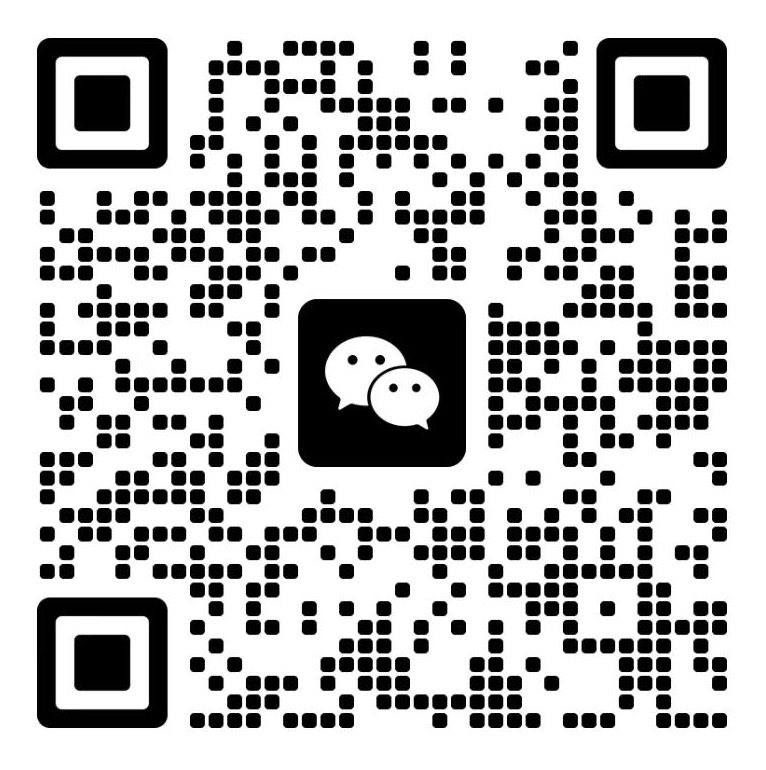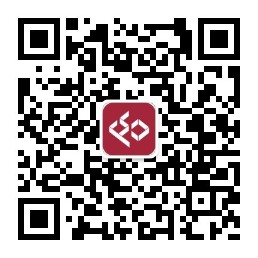【惠宜美本】講座回顧|普林斯頓大學招生官教你備戰(zhàn)頂尖名校(文字+音頻回放)
閱讀: 946 發(fā)表:4年前點擊上方藍字關注我們
主講老師:Ms. Georgenes
老師介紹:
普林斯頓大學前招生官
普林斯頓大學文學學士
哈佛大學教育學專業(yè)碩士
Ms. Georgenes擁有超過15年從事大學招生及申請輔導的經歷,名校申請經驗極其豐富。Ms. Georgenes曾成功輔導學生進入了包括常青藤盟校在內的多所頂尖美國大學,包括普林斯頓大學、斯坦福大學、哈佛大學、耶魯大學、杜克大學、哥倫比亞大學、賓夕法尼亞大學、布朗大學、約翰霍普金斯大學、西北大學、康奈爾大學、布朗大學、達特茅斯學院、范德堡大學等。
講座大綱:
普林斯頓大學的招生過程是怎樣的?招生辦公室如何挑選優(yōu)秀的學生?
疫情期間如何進一步了解夢校?
高中四年應該如何選擇適合自己的活動?怎樣逐步完成頂尖大學青睞的經歷列表?
Common Application申請系統(tǒng):如何充分利用每個問題進行個人展示?
頂尖大學最喜歡什么樣的文書?
申請中的補充材料可以如何為申請增光添彩?
Each University chooses how it will conduct its?admission process. Some do it by committee. Some do it regionally. Some do it in a pyramid structure. Typically, it’s the Dean that determines how they organize their application process. In many cases, there is some sort of general screening of the students’ applications when they first arrived.? At Princeton, there was a small group of people who quickly assessed the students by giving them an academic and a non-academic rating. It was rare that a student was rated a 1-1. (That would mean they are nationally the best academically AND non-academically). Most students who were admitted were around the 2-2 or 2-3 rating. But in certain cases, students who were a 1-5 or a 5-1 could be admitted, depending on the goal of the University.
每所大學的錄取過程不盡相同。有些是招生委員會共同完成,有些是招生官根據地區(qū)分別進行,也有有些以金字塔結構進行。通常情況下,學校招生部門負責人(Dean of Admission) 能夠決定學校如何組織申請流程。在許多情況下,學生申請一開始提交之后,招生部門會先對這些申請進行一輪基礎審查。在普林斯頓大學,招生官會通過學術和非學術兩方面來快速評估學生。很少有學生被評為兩個方面都是最高的1-1。(1為最高等級,這意味著他們在學術和非學術兩方面都是最好的)。大部分被錄取的學生的評分約為2-2或2-3。但是在某些情況下,根據大學的特殊需求,可以錄取評分為1-5或5-1的部分學生。
招生辦如何挑選優(yōu)秀的學生?
The first things colleges look at (and the first thing we always looked at Princeton) is the rigor of a student’s academic program and how well the student does in that program. The most important thing is to find a balance when choosing courses. Colleges understand that sometimes students have to make choices and decisions based on either scheduling conflicts and what is available at your school; just be sure to pick the hardest courses you can take that you can still get good marks.
Students always ask: what classes do colleges want me to take? The answer is they want you to take classes that are important to you.
A good test for the students is this: Please explain why you _________________________ (doubled up on science, dropped a language, didn’t take history senior year, etc). Students can practice saying out loud what they have made certain academic decisions.?
大學首先要看的(也是普林斯頓大學首先會評價的),是學生學術課程的挑戰(zhàn)度以及學生在課程中的表現。因此對學生來說,最重要的是選課時要找到一個平衡點。當然有時候學生也得考慮日程安排和學校提供的課程是否沖突,從而做出選擇和決定,這一點大學是了解的;關鍵是學生需要確保在獲得良好的成績同時,選擇自己能力范圍內最難的課程。學生總是問:大學希望學生上什么課呢?答案是他們希望你參加對你本人重要的課程。學生可以這么問自己:解釋一下我為什么_____________(同時選擇兩門科學課,或者放棄一門語言課,或者11年級沒選歷史,等等)。如果你能給出明確而令人信服的答案,那么你的決定就是正確的。當你自己做出的學術決定的時候,鍛煉一下大聲說出自己的理由。
高中四年如何選擇大學青睞的活動?
Although the first and most important thing colleges look at might be your classes and grades, but colleges are also trying to learn about how students spend their time outside of the classroom. People always ask, what kind of activities do colleges want to see in students? There is no correct answer to that. Colleges want to see students doing what is really meaningful to them and is making an impact on the world, their community or even their family.? So my first advice for students is to spend your time wisely and dedicate to those activities that are important to you.?
The types of activities that students who get into highly selective schools often include research, competition, sports, clubs, internships, volunteering, jobs, music, arts and family responsibilities.?
Another thing is that universities want both the well-rounded students and those with specialties. Typically, as students grow older, they should find and focus more on what is really important to them. In freshman and sophomore year, students try a lot of different activities like sports, musical instruments, etc. In higher grades, they take more leadership roles. That does not mean you are quitting an activity; it simply shows that you have explored and is being a leader or an innovator.?
Take two of the Asian students I have worked with as an example. One girl told me that she did not have any activity, I don't have time. While her parents work, she is responsible for taking care of her autistic sister. That is more important than any model UN, or soccer team. I encouraged her to raise that up as a very important activity. Another girl, who is from China, told me that after school she helps taking care of the stray cats. She felt it was rather informal to write on her list, but I pushed her to think about how she can take an impactful move, such as asking friends to join, raising money or contacting an organization, to take her activity to the next level.?
盡管大學首先考慮并且認為最重要的事情是你的課程和成績,但是大學也希望了解學生如何度過他們的課余時間。人們總是問我,頂尖大學希望看到學生做什么樣的活動?這個問題沒有正確答案。大學希望看到學生做對他們真正有意義的事情,并且正在對世界,他們的社區(qū)甚至他們的家庭產生影響。因此,我對學生的第一個建議是明智地分配課余時間,并將精力放在對你來說真正重要的活動上。
進入錄取率很低的頂尖大學的學生,通常做過以下這些類型的活動:學術研究與競賽,體育,學生俱樂部,實習,志愿服務,工作,音樂,藝術和家庭責任。
大學既喜歡全面發(fā)展的學生,也喜歡某個方向精專的學生。通常,隨著學生年齡的增長,他們應該找到并更多地關注對他們真正重要的事情或者活動。在9和10年級的時候,學生會嘗試許多不同的活動,例如各種體育,樂器等。而在高年級,他們會扮演更多的領導角色。這并不意味著你是退出了一項活動;而只是表現你已經探索過了不同領域,并且正在某項活動中成為領導者或創(chuàng)新者。
以我曾經輔導過的兩個亞洲學生為例。一個女孩告訴我她沒有任何活動,她沒有時間。在父母工作期間,她要負責照顧自閉癥的妹妹。這其實比任何模擬聯合國或足球隊的活動都重要。我鼓勵她將其作為為一項非常重要的活動寫到申請當中。另一個來自中國的女孩告訴我,放學后她會去照顧流浪貓。她覺得這不算是正式活動,不好寫在申請的活動列表中;但是我要求她考慮一下如何進一步采取有影響力的舉動,例如邀請朋友加入,籌集資金或聯系動物保護組織,以將她的活動提升到一個新的水平。
如何利用申請的每個問題進行個人展示

When applying to college, the application should be looked at as a puzzle, made up of several different pieces that all fit together to provide a picture of you. These pieces include the transcript, letters of recommendation, the activities List, the essay, and supplemental essays and questions. Each of these components can be used to share something important about yourself that hopefully all fit together.?
Find connections between what you do in your activities, essays, what you do in the classroom, and what you say that you want to study in college.
在大學申請時,申請本身應該被看做一個拼圖,由很多不同的部分組成,這些部分可以互相配合從而展示出一個完整的學生形象。申請的主要部分包括成績單,推薦信,活動清單,主文書以及每個大學的補充論文和小問題。每一個申請的組成部分都應該分享與學生有關的某些重要信息。
學生需要做的就是把課外活動,文書,課堂上所做的事情以及您想在大學學習的內容相互聯系起來。
頂尖大學最喜歡什么樣的主文書和補充文書?

The essay, often called the personal statement, is probably the best opportunity for you to share something personal and important about yourself. The topics that students choose rinse the spectrum. Before picking a topic, ask yourself: What do I want the reader to say about me after they finish reading my essay. This is the very first thing I did at Princeton: I would write up a couple of sentences about what the essay has taught me about this student, such as Billy is ______________.? And then think of what story that is interesting and compelling you can tell that helps convey that message.
Essay topic can be about an activity, but it does not have to be. It should not sound like a school essay or thesis. It is even ok to use incomplete sentences. For example, if a student uses a very short sentence like "But I didn't", this can actually be a very compelling sentence that can impress your readers. Also, there is actually people at the admission office, so your essay needs to be interesting to read. A good essay should wake a sleepy admission officer after lunch. It can be funny, personal, sad or brave, and make a reader want to continue reading it.?
It also should fit with the essay prompts. Take a look at the prompts given this year, they can help guide you in how to answer those questions.?
In terms of the supplements and the essays, it should be something only you can write. Don't tell the university that because you are in a big city with great museums and shows; they know that. Explain why the university is important and a good fit to you, and only you.?
Here are some of the interesting essay topics that students I have worked with chose. They were all admitted to very competitive universities.?
Yale: Reviving and expanding her school’s science magazine.
Harvard: Being told by her gymnastics coach that she was too fat.
Princeton: Heartfelt efforts to save the environment.
Princeton: Trying a Durian fruit for the first time.
Stanford: Discovering her love of language through visits to South Africa, Europe and South America.
Harvard: Helping a friend who was struggling with mental illness.
Emory: Convincing her mom to go to the dentist.
Amherst: Letting her fashion sense demonstrate her uniqueness.
Brown: Baking with an elderly neighbor – and discovering that her own secret ingredients were lemon and vanilla.
主文書(通常也被稱為個人陳述)可能是學生分享個人重要故事和價值觀的最佳機會。學生選擇的主題范圍非常寬,各不相同。我總是會建議學生在選擇主題之前,先問自己:當讀者閱讀完我的文書后,我希望讀者對我有什么樣的印象。這也是我在普林斯頓大學會做的第一件事:我會寫幾句話總結下這篇文書告訴了我學生哪些信息,例如比利(Billy)是__________樣的一個人。確定了這一點后,學生就可以思考哪些有趣且引人入勝的故事可以幫助你傳達這一信息。
文書內容可以關于一段活動,但不一定要如此。大學申請文書千萬不要寫成學校的論文或報告的形式。有時候學生在申請文書里甚至可以使用不完整的句子;例如,如果你用一個短句,“但是我沒有”,這可能反而非常引人注目的,可以打動招生官。另外,學生需要明白的是招生官也是人,他們也喜歡有意思的文章。一篇好的文書應該可以讓一個午飯后昏昏欲睡的招生官瞬間清醒。你可以把文章寫得有趣,真誠,悲傷或勇敢,這樣讀者才會想要繼續(xù)讀下去。另外,你的故事需要和Common App給出的文書題目相符合。學生應該先看一下今年給出的文書題目選項,它們會幫助指導你的寫作方向。
在補充文書和其他小文書方面,一定要注意,內容一定要從本人出發(fā),有極高的獨特性。不要告訴大學,你們在大城市,有許多博物館和表演;學校知道他們自己的優(yōu)勢。學生要做的是清楚地解釋為什么這所大學對你(并且只是對你)很重要并且很適合自己。
下面列出了幾個我輔導過的學生選擇的一些有趣的論文主題。他們都進入了非常優(yōu)秀的大學。
復興學校的一本科學雜志并且擴大雜志的影響。(學生錄取了耶魯大學)
體操教練告訴學生她太胖了。?(學生錄取了哈佛大學)
對于保護環(huán)境的熱愛。(學生錄取了普林斯頓大學)
第一次嘗試榴蓮。(學生錄取了普林斯頓大學)
通過訪問南非,歐洲和南美發(fā)現對語言的熱愛。
(學生錄取了斯坦福大學)?
幫助一個患有精神疾病的朋友。?(學生錄取了哈佛大學)
說服媽媽去看牙醫(yī)。?(學生錄取了埃默里大學)
利用時尚感彰顯自己的獨特性。?
(學生錄取了馬薩諸塞大學阿默斯特分校大學)
和一個年邁的鄰居一起烘焙–發(fā)現她的秘密成分是檸檬和香草。
(學生錄取了布朗大學)
疫情期間如何進一步了解夢校?

This is indeed a challenging and uncertain time, but colleges will continue. In some ways, the college search process this year can be easier for students who live far away and do not have the opportunity to visit a lot of college campuses. Because now colleges are doing everything they can to reach students. Typically this time of the year, admission officers are traveling to different high schools and even international traveling. When I was at Princeton, my region was New England so I would travel all over the east coast. Now the admission officers can't do that. So they are providing opportunities such as virtual tours, virtual info sessions, interviews with admission officers online, and even virtual connections with current students. If you are far away, you should take advantage of all the above. One advice I can give for taking virtual info sessions is to take a screenshot, since after you take a few, they get similar and it can be harder to remember the difference between universities.?
Having virtual contact with the colleges allows them to have your contact information, and we have to assume that colleges are tracking your interaction with them. If you are having virtual interview or even email contact, it is another way to let the colleges access your personality. So I would recommend students to practice with someone in advance; it is important to engage and have real questions for schools.?
In addition, a lot of students got their SAT, activities, or plans canceled. Colleges understand that. The important thing is to show how you have pivoted: what did you do instead? I encourage students to assess what they have done creatively. The other day I talked to a student who got in great shape and lost 60 pounds during the quarantine. It is a great thing to write his essay about. Think about how you can pivot and recover if you have big plans that got canceled.?
這確實是一個艱難而不確定的時期,但大學的工作一定會繼續(xù)下去。從某些方面來說,在今年,了解大學的過程對于住的遠,沒有機會參觀校園的學生來說可能更容易。現在大學正在盡一切努力吸引學生。通常在每年的這個時候,招生人員都會到不同的高中招生,甚至到美國境外招生。我在普林斯頓工作時,負責的地區(qū)是新英格蘭,所以我會在整個東海岸的學校進行招生活動。但是因為今年的特殊情況,大學提供了很多線上機會,例如虛擬訪校,虛擬信息會,在線招生人員面試,甚至與在校學生進行在線聯系。如果今年學生無法訪校,則應充分利用上面這些機會。對于參加虛擬信息會議,我可以提供的一個建議是多截屏,因為在參加了幾次虛擬會議后,會發(fā)現他們會有重復的地方;截屏能夠幫助你記住各個大學之間的區(qū)別。
與大學進行線上連接,大學就能獲得您的聯系信息,有的大學是會追蹤學生與他們的互動的。虛擬面試甚至是電子郵件聯系也是讓大學進一步了解學生個性的方法。因此,我建議學生提前練習一下;在真正面試或者聯系的時候,一定要態(tài)度積極,并且提出一些有價值的問題。
此外,許多學生的SAT,活動等計劃都被迫取消了。對于這個情況大學是完全理解的。重要的事情是靈活修正本來的計劃。我鼓勵學生在評估自己的經歷時充分發(fā)揮創(chuàng)造力。前幾天,我的一名學生告訴我他在疫情期間體重減輕了60磅。這個經歷其實可以是一個非常好的文書主題。如果你本來的大計劃不得不取消,你一定要顯示出自己是如何調整和恢復的。
Q&A 環(huán)節(jié)回顧


 FindingSchool美高排名
FindingSchool美高排名
 美國
美國
 加拿大
加拿大
 英國/瑞士
英國/瑞士









